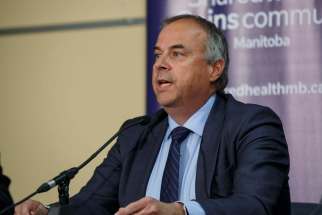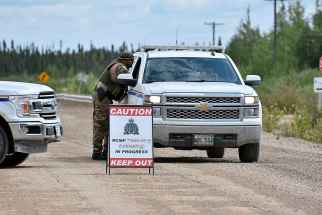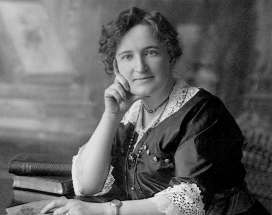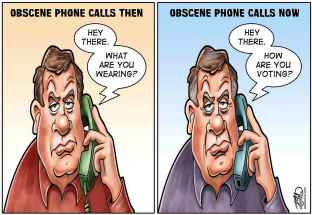WRHA didn’t really turn down free mobile clinic; just made it sound that way
Read this article for free:
or
Already have an account? Log in here »
To continue reading, please subscribe:
Monthly Digital Subscription
$1 per week for 24 weeks*
- Enjoy unlimited reading on winnipegfreepress.com
- Read the E-Edition, our digital replica newspaper
- Access News Break, our award-winning app
- Play interactive puzzles
*Billed as $4 plus GST every four weeks. Offer only available to new and qualified returning subscribers. Cancel any time.
Read unlimited articles for free today:
or
Already have an account? Log in here »
Hey there, time traveller!
This article was published 06/08/2019 (2005 days ago), so information in it may no longer be current.
Nothing about this story seemed to make sense, which was exactly what made it a story in the first place.
The Free Press reported late last week that the Winnipeg Regional Health Authority had spurned an offer of a free mobile clinic from Doctors of the World, the Canadian branch of an international organization that provides health services to vulnerable people all over the globe, to help some of the city’s most vulnerable citizens.
In a January letter to Doctors of the World, the WRHA seemed to suggest it was simply too busy restructuring Winnipeg’s hospital system — a project that has included the controversial closure of three emergency departments — to consider anyone’s offer of free help “at this point in time.”
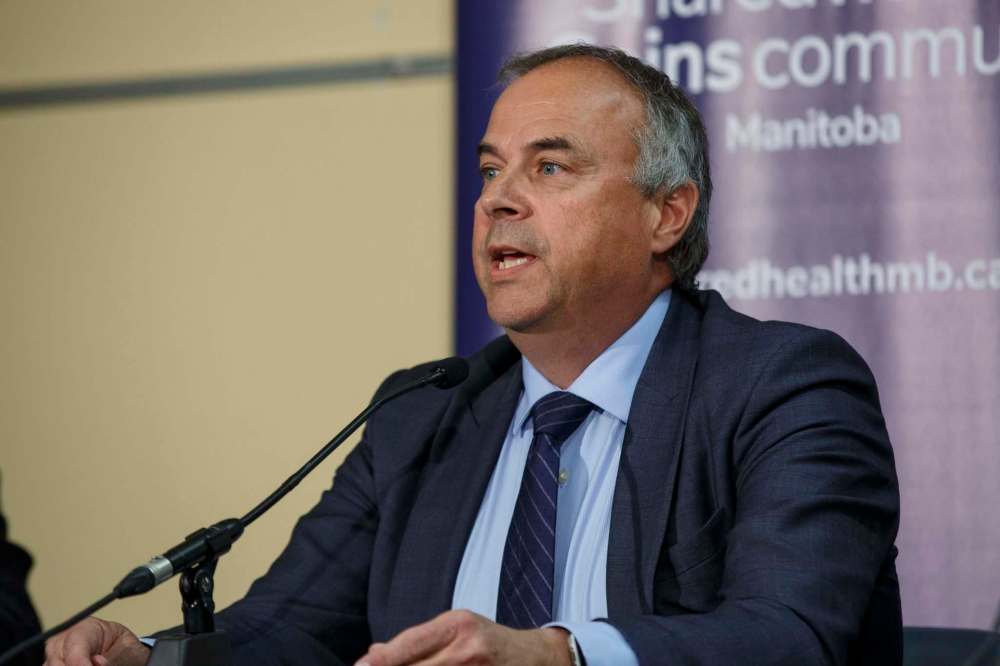
WRHA letter to Medecins du Monde, Jan. 30, 2019
Why would the WRHA refuse the help of an established international agency committed to public health? Particularly at a time when financial resources for new initiatives are so scarce? It boggles the mind.
This week, in the wake of reaction to the initial news story, the WRHA had the opportunity rethink its position. Now, according to the senior ranks at the authority, a do-over is definitely in order.
“I would never refuse ‘free,'” said Réal Cloutier, the WRHA’s president and CEO.
Of course, there are caveats to Cloutier’s comment. More information is needed about Doctors of the World, what it is proposing and what kind of public resources — financial or otherwise — would be needed to help bring the mobile clinic proposal to life.
To date, he said, the WRHA has not received a formal, detailed proposal that would answer those questions.
“I can’t actually tell you whether this is something that will meet our needs,” Cloutier said.
His assertion was verified by Doctors of the World. According to the Montreal-based organization, no formal proposal has been produced, and will come only after detailed consultations with the local health authority and other community partners.
Doctors of the World Executive Director Nadja Pollaert said in an interview that despite the language used in the letter from the WRHA, no doors have been closed on a Winnipeg project and she is happy to revive discussions with the WRHA. In fact, Pollaert said she expected to speak to Cloutier as early as Tuesday afternoon.
The initiative Doctors of the World wants to bring to Winnipeg is modelled on successful projects in Victoria and Montreal, the latter of which is already 20 years old. Pollaert said nurses in Montreal started in 1999 on foot with backpacks, dispensing basic treatment, information about health-care options and testing for infectious diseases.
In 2014, thanks to corporate sponsorship, a mobile clinic van was provided, she said. A similar program started last year in Victoria and Telus, the telecommunications company, hopes to roll out similar mobile clinics in other Canadian cities.
Pollaert said each city has different challenges and, as a result, it takes intensive negotiation with local parties to come up with a final plan. Telus, which is branching out into the health-care sector, does provide resources up front, but the final plan — which includes support for equipment, supplies and medical professionals to staff the mobile clinic — involves many more moving parts.
It deserves to be noted that Doctors of the World could proceed without the involvement of the WRHA; the organization does not need government approval to operate a mobile clinic as long as it is staffed by licensed medical professionals. Still, Pollaert said Doctors of the World insists on direct collaboration with provincial health authorities.
In Montreal, a coalition of five sponsoring organizations — including Telus, social-service agencies, a financial institution and the City of Montreal — were needed to launch the mobile clinic initiative. Despite the complexity of negotiations to cobble together a coalition of interested parties, the results have been impressive; since 1999, tens of thousands of vulnerable citizens have been treated, tested or referred to other areas of the health-care system.
“I would never refuse ‘free’.” – Réal Cloutier, CEO of the Winnipeg Regional Health Authority
“We don’t want to replace the public health-care system,” said Pollaert. “We want to support the public health-care system.”
When you boil down this story, it appears what we have here is a classic failure to communicate.
When the WRHA indicated via letter it wasn’t interested in the offer of a free mobile clinic “at this point in time,” the author was relying on some very unfortunate language. What they meant to say was that the WRHA didn’t have all of the information needed to offer an informed opinion about the potential benefits of a mobile clinic on Winnipeg streets.
The phrase “at this point in time” was particularly unfortunate. The author of those words may choose to interpret it as an offer to talk again in the future, but most of us recognize it as a classic, passive-aggressive rejection. “Thanks for your resumé, but we are not hiring at this point in time.”
It also didn’t help that just as we’re about to go into a provincial election, the WRHA wrote a letter that blamed the restructuring of Winnipeg hospitals for its inability to properly consider the Doctors of the World proposal. Connecting the refusal of a potentially free mobile clinic with a controversial government health initiative is certainly not going to ease pre-election anxiety in Premier Brian Pallister’s office.
If nothing else, this story reinforces the importance of precise language and thoughtfully considered responses to all issues of public policy. Or, put another way, senior officials at the WRHA might consider that anything they put in correspondence can, and likely will, become public at some point.
A stark realization like that, applied before any response is penned, can certainly go a long way to defusing future political brushfires.
dan.lett@freepress.mb.ca

Dan Lett
Columnist
Born and raised in and around Toronto, Dan Lett came to Winnipeg in 1986, less than a year out of journalism school with a lifelong dream to be a newspaper reporter.
Our newsroom depends on a growing audience of readers to power our journalism. If you are not a paid reader, please consider becoming a subscriber.
Our newsroom depends on its audience of readers to power our journalism. Thank you for your support.
History
Updated on Tuesday, August 6, 2019 7:54 PM CDT: Adds details




